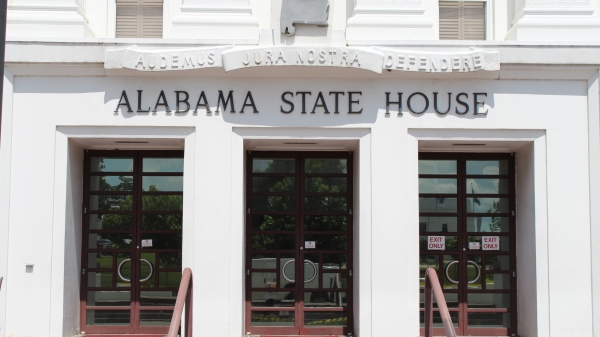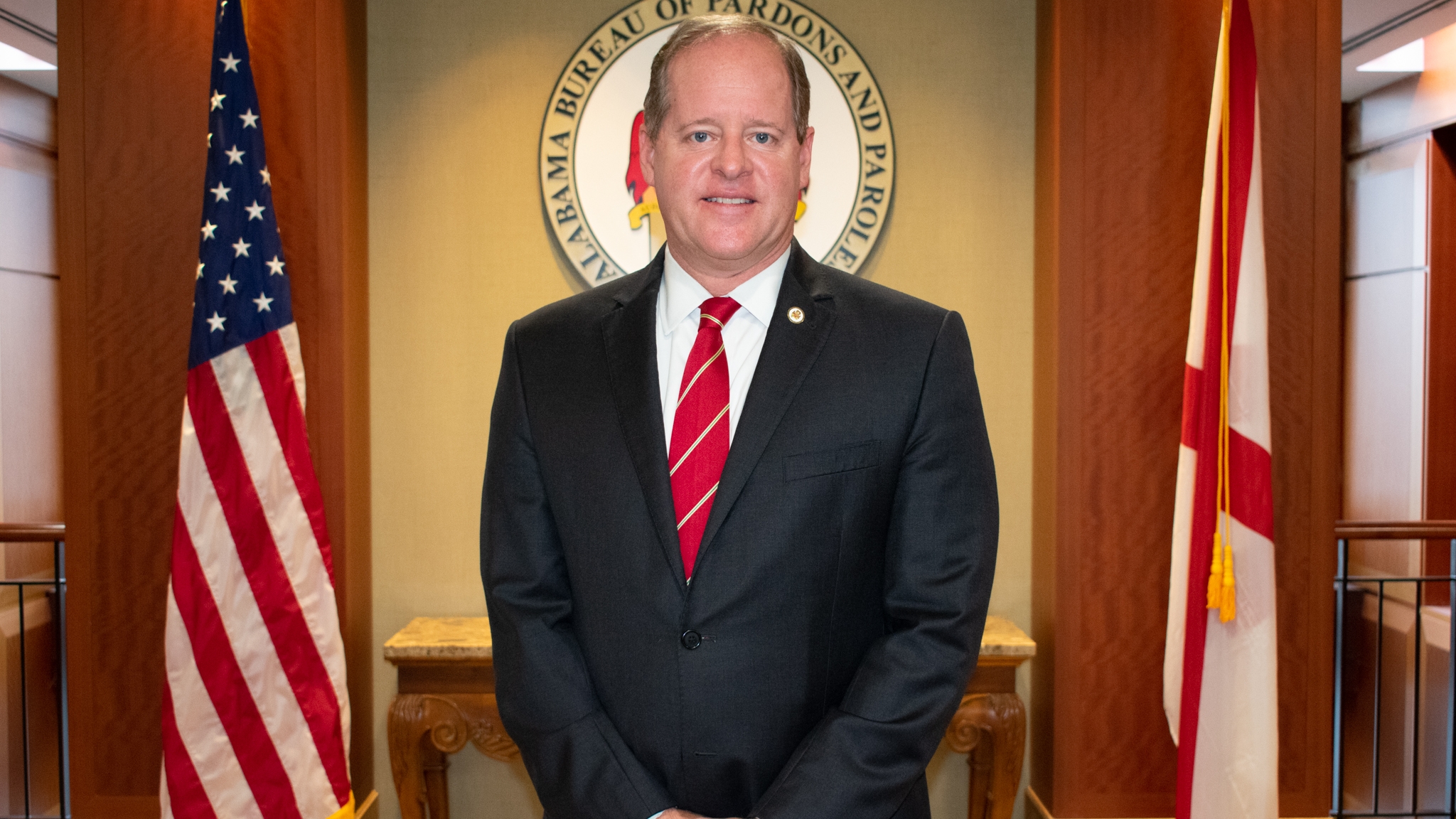Cam Ward, director of the Alabama Bureau of Pardon and Paroles, said he’s working to increase transparency of pardon and parole hearings, but it may be weeks yet before that work bears fruit, and there are complications.
Pardons and parole hearings were canceled on March 13, 2020, due to the COVID-19 pandemic. Gov. Kay Ivey on April 13, 2020, issued a proclamation resuming hearings, but also temporarily did away with the state law that allows in-person attendance. Instead, victims, officials and those seeking an incarcerated person’s release may write letters to the board for consideration. That proclamation is still in effect.
Ward told APR on Friday that the day before he discussed with the three-member Pardons and Paroles Board — which by state law operates independently of the bureau — the possibility of allowing virtual attendance to hearings using the virtual meeting platform Zoom.
“That way that’s still more personal than just a letter,” Ward said.
But the change couldn’t begin before June, Ward said, because notifications to all involved in an incarcerated person’s case — victims, families and attorneys — have already been sent as for hearings that are to occur through June.
There’s also a concern about a lack of internet access for many families in rural parts of the state, and other technical issues that may complicate virtual attendance.
Ward said a day’s hearings can run from 8 a.m. until 5 p.m. with numerous cases held a day.
“If you’re number six on the docket you may come up at 10 o’clock, and you may come up at 1 o’clock,” Ward said, noting that speaking with the bureau’s IT staff he believes people will have to be on standby and notified by bureau staff when it’s time to log on.
“I think it’s going to cut down on the number of cases we hear dramatically,” he said.
Ward said the bureau is about to begin meeting four days per week, and is averaging about 30 cases each day. He believes if they move to virtual hearing attendance it could cut the number of cases seen daily in half.
Ward said he would also like to see incarcerated people attend their own hearings to help make their case for release, which is something he said has never been done in Alabama.
“I would love to see more transparency, even after COVID. Maybe the opportunity for an inmate to say, ‘I’m here. Here’s my case. ‘Whether the board votes for them or not, at least give them the opportunity to say why they should be paroled,” Ward said.
Asked about when those hearings would be reopened for people to attend in person, Ward said under the state’s current order in-person hearings aren’t yet required, but that “I would like to start seeing us get there.”
Ward said he’d recently spoken to Ivey’s office about just that, and planned to ask State Health Officer Dr. Scott Harris to visit the hearing room and advise whether in-person hearings could be held safely.
“To make sure we’re following public health guidelines,” Ward said.
Ward said he believes the decision on whether to reopen meetings is his to make, not the board’s, but that “this has never happened before.”
“I want more openness. I want to get back as soon as we can to public meetings, but at the same time recognize the public health guidelines. I just want to make sure we’re safe,” Ward said.
Ward, a former state senator who was chair of the Senate Judiciary Committee, was appointed as director in December, replacing former Alabama Attorney General Charlie Graddick. Ivey had appointed Graddick in September 2019, and Graddick suspended all hearings in September and October. When hearings resumed in November, the number of persons receiving a hearing declined sharply.
The U.S. Department of Justice in December 2020, filed a federal lawsuit against the state of Alabama and the Alabama Department of Corrections alleging violations of inmates’ constitutional rights to protection from prisoner-on-prisoner violence, sexual abuse and excessive force by prison guards.
The DOJ’s lawsuit states Alabama’s prisons are understaffed and overpopulated, which exacerbates the violence.


















































